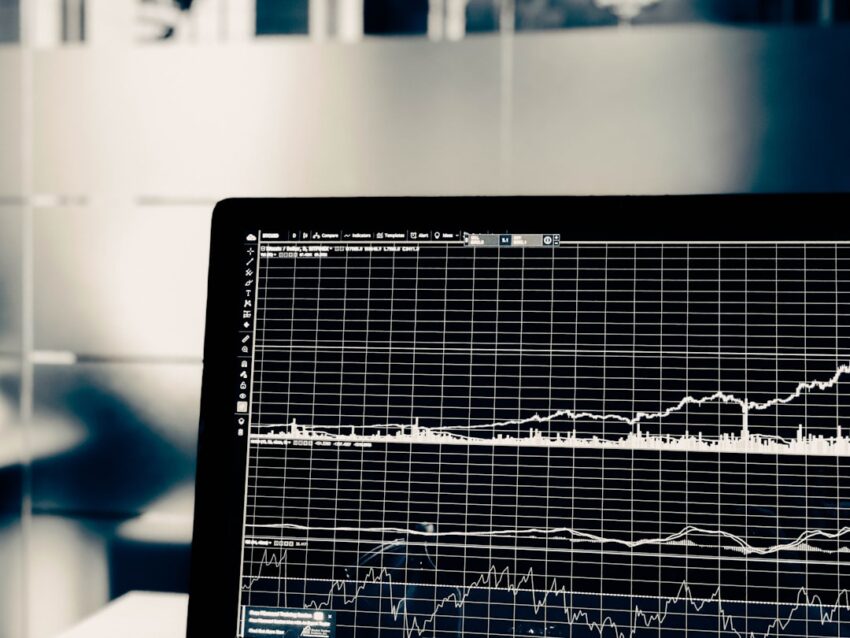A stock exchange is a marketplace where buyers and sellers come together to trade stocks and other securities. It provides a platform for companies to raise capital by selling shares of their company to investors. The largest stock exchange in the world is the New York Stock Exchange (NYSE), located on Wall Street in New York City.
The NYSE is considered the largest stock exchange based on market capitalization, which is the total value of all the listed companies’ shares. It has a long history dating back to 1792 when it was founded by a group of stockbrokers. Over the years, it has grown to become a symbol of American capitalism and a global financial hub.
Key Takeaways
- The largest stock exchange in the world plays a crucial role in the global economy.
- Cash trading is a fundamental aspect of the stock exchange, where buyers and sellers exchange shares for money.
- Investment in the stock exchange can provide opportunities for growth and diversification in a portfolio.
- The stock market has a rich history of growth and development, with technology playing a significant role in recent years.
- The future of the stock exchange looks promising, with potential for continued growth and innovation.
Understanding Cash Trading on the Stock Exchange
Cash trading refers to the buying and selling of stocks for immediate delivery and payment. It is the most common form of trading on the stock exchange and involves the exchange of physical shares and cash between buyers and sellers.
In cash trading, investors place orders to buy or sell stocks at a specific price. These orders are executed on the stock exchange through brokers who act as intermediaries between buyers and sellers. Once a trade is executed, the buyer pays cash for the shares, and the seller delivers the physical shares.
One advantage of cash trading is that it provides immediate ownership of shares. Investors can buy and sell stocks quickly, allowing them to take advantage of short-term price movements. However, cash trading also carries risks, such as price volatility and liquidity issues. Additionally, investors need to have sufficient funds available to settle their trades.
The Role of Investment in the Stock Exchange
Investment plays a crucial role in the stock exchange as it provides companies with the capital they need to grow and expand their operations. By investing in stocks, individuals and institutions become shareholders in companies, giving them a stake in the company’s success.
There are different types of investment in the stock exchange, including long-term investing and short-term trading. Long-term investing involves buying stocks with the intention of holding them for an extended period, usually years or even decades. This strategy allows investors to benefit from the company’s growth and receive dividends.
On the other hand, short-term trading involves buying and selling stocks within a short time frame, often days or weeks. Traders aim to profit from short-term price fluctuations and market trends. This type of investment requires active monitoring of the market and a deep understanding of technical analysis.
Investing in the stock exchange carries both risks and rewards. The stock market is known for its volatility, and prices can fluctuate rapidly. However, it also offers the potential for high returns on investment. Investors need to carefully assess their risk tolerance and conduct thorough research before making investment decisions. Learn how to put $1700 a day in your pocket with a Secret Protocol here.
History of the Stock Market and its Growth
The stock market has a long history that dates back centuries. The first stock exchange was established in Amsterdam in 1602, known as the Amsterdam Stock Exchange. It was created to facilitate trade in shares of the Dutch East India Company, one of the world’s first publicly traded companies.
Since then, stock markets have evolved and grown around the world. In the United States, the NYSE was founded in 1792, followed by the creation of other major exchanges such as the Nasdaq in 1971. These exchanges played a significant role in financing industrialization and economic growth.
The stock market has experienced several major events that have shaped its development. One such event was the Wall Street Crash of 1929, which led to the Great Depression. This event highlighted the need for regulation and investor protection, leading to the creation of the Securities and Exchange Commission (SEC) in 1934.
Over time, the stock market has grown in size and importance. It has become a key indicator of economic health and a barometer of investor sentiment. Today, stock markets around the world are interconnected, allowing investors to trade securities globally.
How the Stock Exchange Works
The stock exchange operates as a centralized marketplace where buyers and sellers come together to trade stocks and other securities. It provides a platform for companies to raise capital by selling shares to investors and for investors to buy and sell stocks.
The key players in the stock exchange include listed companies, investors, brokers, and market makers. Listed companies are the ones that have gone through an initial public offering (IPO) and have their shares listed on the exchange. Investors can be individuals, institutions, or funds that buy and sell stocks.
Brokers act as intermediaries between buyers and sellers. They execute trades on behalf of their clients and provide them with research and advice. Market makers are specialized firms that provide liquidity to the market by buying and selling stocks at quoted prices.
The trading process on the stock exchange involves placing orders to buy or sell stocks. These orders can be market orders, which are executed at the prevailing market price, or limit orders, which are executed at a specific price or better. Once a trade is executed, it is settled through a clearinghouse, which ensures that the buyer receives the shares and the seller receives payment.
The Importance of the Largest Stock Exchange in the Global Economy

The largest stock exchange in the world, the NYSE, plays a significant role in the global economy. It serves as a barometer of economic health and investor sentiment, reflecting the performance of listed companies and overall market conditions.
The stock exchange has a direct impact on the economy by providing companies with access to capital. By selling shares to investors, companies can raise funds for expansion, research and development, and other business activities. This capital injection stimulates economic growth and job creation.
Moreover, the stock exchange promotes economic efficiency by allocating resources to their most productive uses. Investors allocate their capital to companies with the highest growth potential, encouraging innovation and competition. This process helps drive economic growth and productivity.
The stock exchange also plays a crucial role in attracting foreign investment. International investors are drawn to the largest stock exchange due to its size, liquidity, and transparency. Foreign companies often list their shares on the NYSE to gain access to global capital markets and increase their visibility.
The Top Companies Listed on the Stock Exchange
The NYSE is home to some of the world’s largest and most successful companies. These companies span various industries, including technology, finance, healthcare, and consumer goods. Some of the top companies listed on the stock exchange include Apple, Microsoft, Amazon, JPMorgan Chase, and Johnson & Johnson.
These companies have achieved success through factors such as strong management teams, innovative products or services, and a solid financial performance. They have demonstrated their ability to generate consistent revenue and profits, making them attractive investments for shareholders.
The top companies listed on the stock exchange play a crucial role in driving market performance and investor sentiment. Their performance can influence the overall direction of the market and impact investor confidence. Additionally, these companies often serve as benchmarks for their respective industries.
The Impact of Technology on the Stock Exchange
Technology has had a profound impact on the stock exchange, transforming how trading is conducted and increasing market efficiency. The advent of electronic trading platforms has made it easier for investors to buy and sell stocks, reducing transaction costs and increasing liquidity.
One of the key advantages of technology in the stock exchange is the speed at which trades can be executed. Electronic trading platforms allow for instant order matching and execution, eliminating the need for physical trading floors and manual processes. This speed has also led to increased market volatility and the rise of high-frequency trading.
Technology has also improved market transparency by providing investors with real-time access to market data and information. Investors can now access financial news, company reports, and analyst research at their fingertips. This transparency has empowered individual investors and leveled the playing field with institutional investors.
However, technology in the stock exchange also carries risks. The reliance on computer algorithms and automated trading systems can lead to market disruptions and flash crashes. Additionally, the increasing use of complex financial instruments and derivatives has raised concerns about systemic risk and market stability. Learn how to consistently cash flow the markets daily here.
The Future of the Stock Exchange and its Potential for Growth
The stock exchange is expected to continue growing in the future, driven by factors such as globalization, technological advancements, and increasing investor participation. The rise of emerging markets and the integration of global financial markets will create new opportunities for investors and companies.
The potential for growth in the stock exchange is also fueled by the increasing popularity of passive investing and index funds. These investment vehicles track a specific market index, such as the S&P 500, and provide investors with diversified exposure to a broad range of stocks. This trend has led to increased trading volumes and liquidity in the stock market.
However, the stock exchange also faces challenges in the future. Regulatory changes, geopolitical uncertainties, and economic downturns can impact market performance and investor confidence. The stock exchange will need to adapt to changing market dynamics and ensure investor protection to maintain its relevance.
The Significance of the Largest Stock Exchange in the World for Investors and Traders.
In conclusion, the largest stock exchange in the world, the NYSE, plays a crucial role in the global economy. It provides companies with access to capital, promotes economic efficiency, and attracts foreign investment. The top companies listed on the stock exchange drive market performance and serve as benchmarks for their industries.
Investing and trading on the stock exchange offer numerous benefits for individuals and institutions. It provides opportunities for wealth creation, portfolio diversification, and participation in economic growth. However, it also carries risks that investors need to carefully manage.
The future of the stock exchange holds great potential for growth, driven by globalization, technological advancements, and increasing investor participation. However, it also faces challenges such as regulatory changes and economic uncertainties. The stock exchange will need to adapt and innovate to remain a vital part of the global financial system.
If you’re curious about the largest stock exchange in the world and want to learn more about investing in the stock market, you should check out this informative article on how to start investing in the stock market. It provides valuable insights and practical tips for beginners who are looking to enter the world of stocks and shares. Understanding the basics is crucial before diving into any investment, and this article will help you navigate through the initial steps with confidence.
FAQs
What is a stock exchange?
A stock exchange is a marketplace where stocks, bonds, and other securities are bought and sold.
What is the largest stock exchange in the world?
The New York Stock Exchange (NYSE) is the largest stock exchange in the world by market capitalization.
What is market capitalization?
Market capitalization is the total value of a company’s outstanding shares of stock. It is calculated by multiplying the number of outstanding shares by the current market price of one share.
How does the NYSE work?
The NYSE operates as an auction market, where buyers and sellers come together to trade stocks. Traders on the floor of the exchange use hand signals and verbal cues to communicate their trades.
What types of companies are listed on the NYSE?
The NYSE lists a wide range of companies, including large multinational corporations, small and mid-sized businesses, and exchange-traded funds (ETFs).
What are the benefits of listing on the NYSE?
Listing on the NYSE can provide companies with increased visibility, access to capital, and credibility with investors. It can also help companies attract and retain top talent.



